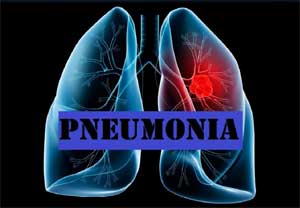- Home
- Editorial
- News
- Practice Guidelines
- Anesthesiology Guidelines
- Cancer Guidelines
- Cardiac Sciences Guidelines
- Critical Care Guidelines
- Dentistry Guidelines
- Dermatology Guidelines
- Diabetes and Endo Guidelines
- Diagnostics Guidelines
- ENT Guidelines
- Featured Practice Guidelines
- Gastroenterology Guidelines
- Geriatrics Guidelines
- Medicine Guidelines
- Nephrology Guidelines
- Neurosciences Guidelines
- Obs and Gynae Guidelines
- Ophthalmology Guidelines
- Orthopaedics Guidelines
- Paediatrics Guidelines
- Psychiatry Guidelines
- Pulmonology Guidelines
- Radiology Guidelines
- Surgery Guidelines
- Urology Guidelines
Caution- PPIs linked to pneumonia in older adults

Proton-pump inhibitors (PPIs) are the medicines commonly prescribed to reduce gastric acid and to protect the stomach, thereby preventing stomach ulcers or heart burn. However, a new study suggests that use of PPIs might be linked to pneumonia in older people. This research holds significance as pneumonia is one of the major cause of deaths in older adults.
David Melzer, professor at the University of Exeter Medical School in Exeter, England, and colleagues, conducted the study to estimate associations between long‐term use of PPIs and pneumonia incidence in older adults in primary care. The study was published in Journal of the American Geriatrics Society.
PPIs have also been linked to increased rates for certain fractures, cardiovascular disease, and some bacterial infections. The association between PPI use and pneumonia was studied because stomach acid is a barrier to infections spreading from the gut in people with stomach reflux.
"This study shows that there was a higher rate of pneumonia in older people who received PPIs over a two year period. Caution is needed in interpreting the findings as our study is based on analyzing data from medical records, so other factors may be involved. However, our study adds to growing evidence that PPIs are not quite as safe as previously thought, although they are still a very useful class of medication for certain groups of patients, " said Dr. Melzer.
The researchers used information from Clinical Practice Research Datalink (CPRD) for England, a large database containing records from many primary care practices in the U.K. They selected patients 60-years-old and older who had taken prescribed PPIs regularly and who also had previous regular medical records. The researchers identified more than 75,000 older adults who were treated with PPIs.
As with all prescription medications, users should regularly review use of medicines like PPIs with healthcare providers to make sure each prescription is still needed. The researchers noted that patients should not stop taking PPIs themselves without consulting with healthcare professionals.
For further information click on the link: https://doi.org/10.1111/jgs.15385

Disclaimer: This site is primarily intended for healthcare professionals. Any content/information on this website does not replace the advice of medical and/or health professionals and should not be construed as medical/diagnostic advice/endorsement or prescription. Use of this site is subject to our terms of use, privacy policy, advertisement policy. © 2020 Minerva Medical Treatment Pvt Ltd